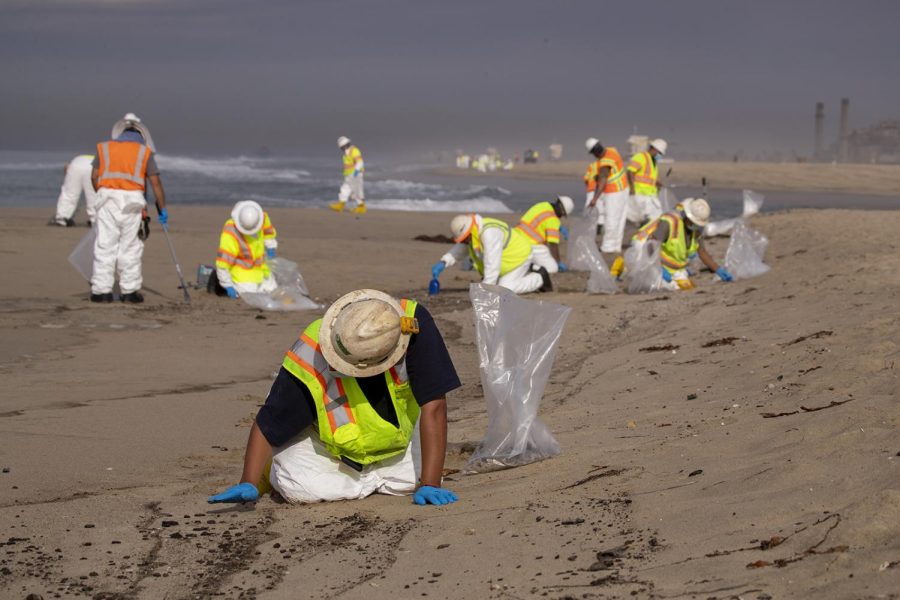Offshore oil drilling ineffective, unsafe
October 18, 2021
Dark blackened beaches and wildlife covered in a black slimy goo is a nightmare from hell for environmentalists, but it should also be terrifying for every human on Earth.
Offshore oil drilling is not safe or effective because the cons outweigh the pros in every situation.
There have been at least two oil spills every year globally since 2010, according to Statista.
The most recent was the Amplify Energy oil spill in Southern California and the worst being the Deepwater Horizon oil spill in the Gulf of Mexico in 2010.
Based on the information from the Chesapeake Bay Foundation, the oil and gas industry loses millions of dollars and tons of toxic pollution is released into the ocean, atmosphere and land when there is a massive oil spill.
The most heartbreaking part is that the animals are the first affected, with an increase in wildlife death and a decrease in the species’ population.
The air is polluted by volatile organic compounds and greenhouse gases, along with other toxic substances.
If destroying the ecosystem and not having any oxygen from the air to breathe is a good thing, then by all means the oil and gas companies should keep drilling offshore.
However, once people experience radiation, inhalation of contaminated dust and consumption of contaminated food and water, then maybe the oil and gas industry will wake up and realize that the health of the earth is more important than money.
People working or living near the oil disposal site have a higher chance of going through those situations.
The U.S. can definitely use a cleaner way to acquire oil, according to the Carnegie Endowment for International Peace website.
Increasing fuel economy standards is the most efficient alternative to offshore drilling.
This can decrease the amount of fuel used in vehicles and machines that require oil to operate and save money while reducing emissions.
Using and making electric cars such as plug-in hybrid vehicles and hybrid vehicles electric affordable will reduce the need for gas.
Unlike gasoline, the use of cellulosic ethanol is predicted to produce 133 million barrels of oil annually by 2030, saving consumers billions of dollars per year while lowering the gas emissions from 87% to 94%.
Offshore oil drilling reserves are just not big enough to significantly impact the world’s oil prices or the U.S. dependency on foreign oil. So it makes no sense for the U.S. and the rest of the world to use them at such a high rate or even at all.



